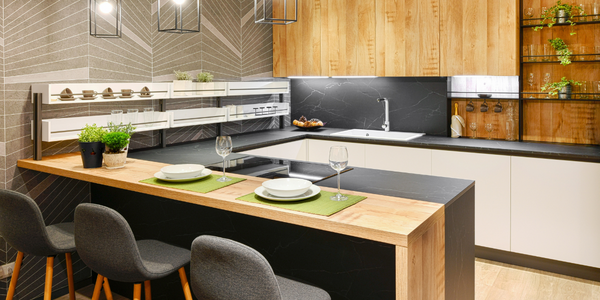Download PDF
Vaxcel Strengthens Carrier Relationships While Adding Efficiencies
Technology Category
- Functional Applications - Fleet Management Systems (FMS)
Applicable Industries
- Consumer Goods
Applicable Functions
- Logistics & Transportation
Use Cases
- Fleet Management
Services
- System Integration
The Challenge
Vaxcel International, a manufacturer and distributor of home lighting and fan solutions, was looking for a transportation management system (TMS) that would not limit them to traditional processes. Their main concern was maintaining strong carrier relationships without compromising on efficiencies. Many TMS providers they had dealt with in the past were directly connected to one carrier or another, making it difficult to gain an impartial perspective on freight rates. They wanted to be able to objectively view all available rates, book them, and manage the process all from one location without sacrificing valued partnerships they have developed over the years.
About The Customer
Vaxcel International is a manufacturer and distributor of home lighting and fan solutions. The company is always looking for ways to make its operation more efficient. When they began assessing options for a transportation management system (TMS), they knew that they wanted a forward-thinking TMS that wouldn’t box them into traditional processes. Their main concern was keeping their carrier relationships strong without compromising on efficiencies. Many TMS providers they had dealt with in the past were directly connected to one carrier or another, making it difficult to gain an impartial perspective on freight rates.
The Solution
Vaxcel chose Kuebix as their TMS provider. Kuebix was able to provide Vaxcel with the capability to objectively view all available rates, book them, and manage the process all from one location without sacrificing valued partnerships they have developed over the years. Before Kuebix, Vaxcel had always gotten quotes one at a time from each carrier’s website, making it difficult to find the best rate at the right service type. After adopting Kuebix as their TMS, they discovered that a carrier they had been using on a specific lane, although a 1st tier carrier in general, was actually a 3rd tier carrier on that lane. With this information they were able to adjust who received the tender, saving substantial money. They also used Kuebix to create BOLs for their shipments, which was a disjointed and tedious process before.
Operational Impact
Quantitative Benefit
Related Case Studies.
.png)
Case Study
Improving Vending Machine Profitability with the Internet of Things (IoT)
The vending industry is undergoing a sea change, taking advantage of new technologies to go beyond just delivering snacks to creating a new retail location. Intelligent vending machines can be found in many public locations as well as company facilities, selling different types of goods and services, including even computer accessories, gold bars, tickets, and office supplies. With increasing sophistication, they may also provide time- and location-based data pertaining to sales, inventory, and customer preferences. But at the end of the day, vending machine operators know greater profitability is driven by higher sales and lower operating costs.

Case Study
Series Production with Lot-size-1 Flexibility
Nobilia manufactures customized fitted kitchens with a lot size of 1. They require maximum transparency of tracking design data and individual processing steps so that they can locate a particular piece of kitchen furniture in the sequence of processes.

Case Study
American Eagle Achieves LEED with GE LED Lighting Fixtures
American Eagle Outfitters (AEO) was in the process of building a new distribution center. The AEO facility management team decided to look at alternate options for lighting layout that could provide energy and maintenance savings. AEO would need a full-time maintenance employee just to replace burned-out fluorescent tubes.

Case Study
Revolutionizing Rodent Control
From pet- and child-safe traps, to touch-free and live-catch rodent control solutions, Victor continues to stay committed to producing superior products that meet the varying needs of today’s pest control professionals. And, with a long standing history supporting customers in the food processing, service, and retail settings, Victor knew that strict regulations were costing organizations thousands of dollars in excess overhead trying to manage their rodent-control solutions. Trap inspections in these environments are often difficult and time consuming, requiring personnel to manually check a trap’s status multiple times per day, amounting to over six hours of manual labor. Victor is looking for an innovative way to increase operational efficiencies with the use of technology.







